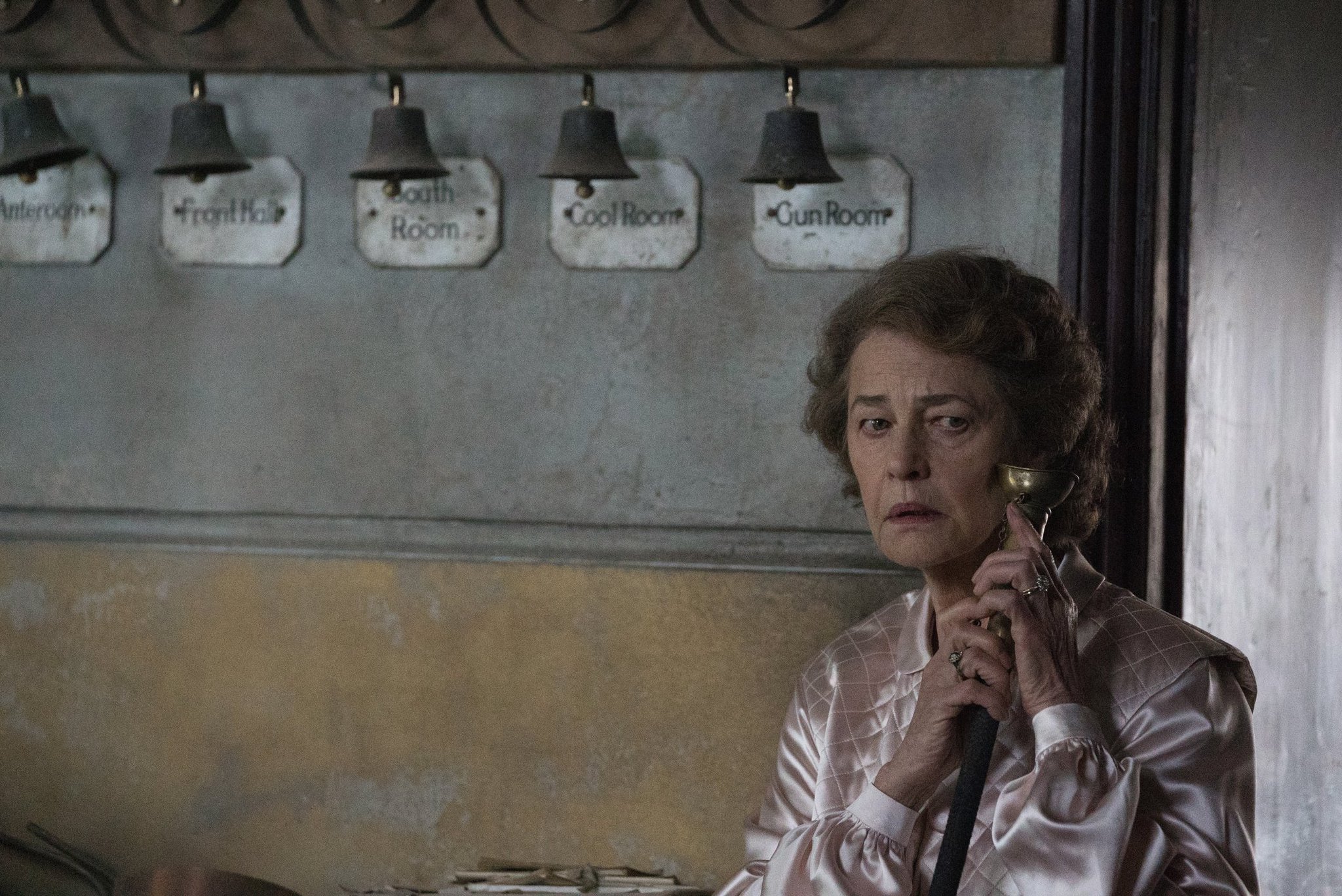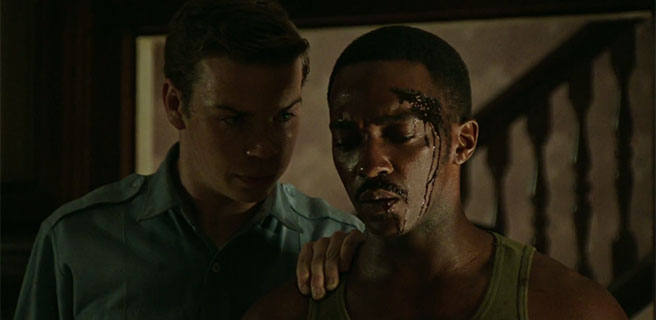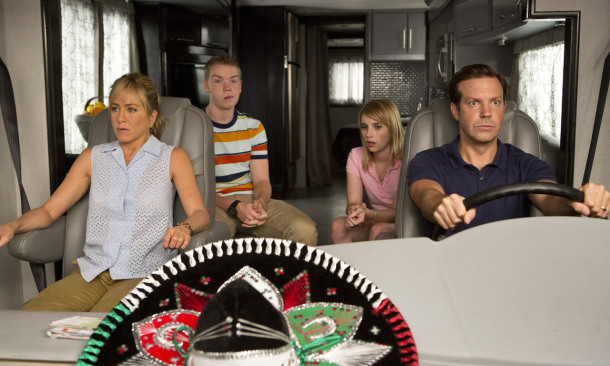Midsommar
by Hope Madden and George Wolf
Just two features into filmmaker Ari Aster’s genre takeover and already you can detect a pattern. First, he introduces a near-unfathomable amount of grief.
Then, he drags you so far inside it you won’t fully emerge for days.
In Midsommar, we are as desperate to claw our way out of this soul-crushing grief as Dani (Florence Pugh). Mainly to avoid being alone, Dani insinuates herself into her anthropology student boyfriend Christian’s (Jack Reynor) trip to rural Sweden with his buds.
Little does she know they are all headed straight for a modern riff on The Wicker Man.
From the trip planning onward, Dani and the crew don’t make a lot of natural decisions. The abundance of drugs and the isolation of their Swedish destination make their choices more believable than they might otherwise be, but in the end, individual characters are not carved deeply or clearly enough to make their arcs resonate as terrifyingly as they might.
There are definite strengths, though—chief among them, Florence Pugh. The way she articulates Dani’s neediness and strength creates a glue that holds the story in place, allowing Aster to add spectacular visual and mythological flourishes.
Will Poulter, as Christian’s friend Mark, is another standout. Equal parts funny and loathsome, Poulter (The Revenant, Detroit) breaks tensions with needed levity but never stoops to becoming the film’s outright comic relief.
Like Hereditary, Midsommar will be polarizing among horror fans -perhaps even more so- for Aster’s confidence in his own long game. Like a Bergman inspired homage to bad breakups, this terror is deeply-rooted in the psyche, always taking less care to scare you than to keep you unsettled and on edge.
Slow, unbroken pans and gruesome detail add bleak depth to the film’s tragic prologue, leaving you open for the constant barrage of unease and disorientation to come. Carefully placed pictures and artwork leave trails of foreshadowing while the casual nature of more overt nods (“there’s a bear”) only add to the mind-fuckery.
And while Aster is hardly shy about this motives – multiple shots through open windows and doors reinforce that – it doesn’t mean they’re any less effective.
The contrast of nurturing sunlight with the darkest of intentions recalls not only Wicker Man but Texas Chainsaw Massacre for its subliminal takeover of the sacred by the profane. Pair this with the way Aster manipulates depth of field, both visual and aural, and scene after scene boasts hallucinatory masterstrokes.
Midsommar is a bold vision and wholly unnerving experience (emphasis on experience)—the kind of filmmaking the genre is lucky to have in its arsenal.





